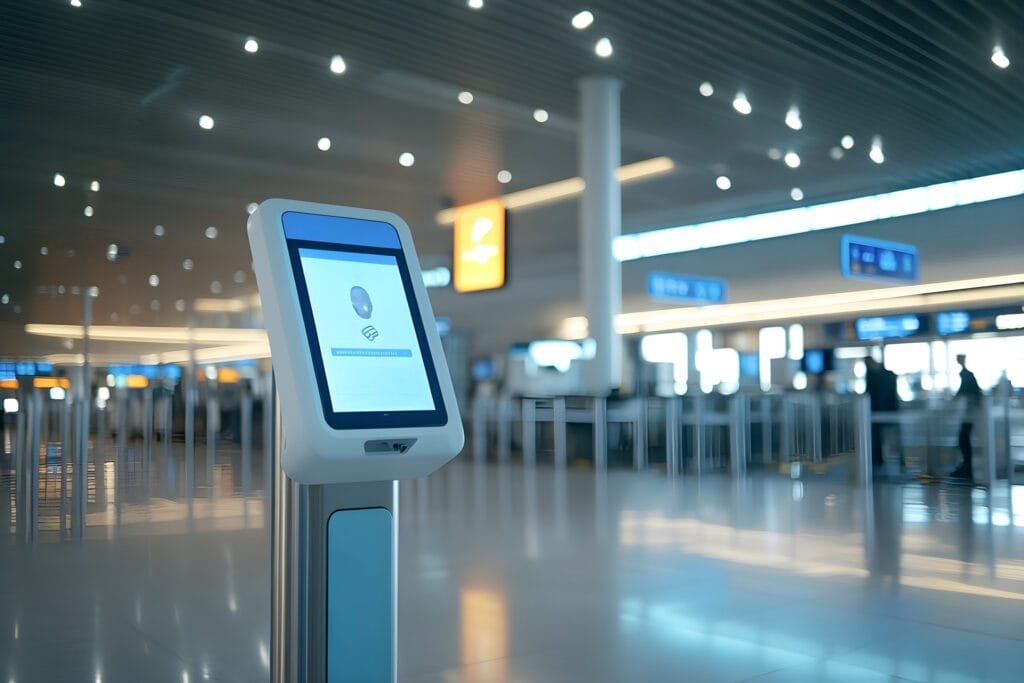From AI-driven planning tools to biometric boarding, travel technology in 2025 is reshaping how we plan, book, and experience our journeys. Whether you’re a frequent flyer or a casual vacationer, these innovations are creating smoother, safer, and more personalized adventures around the globe.
1) AI-Powered Trip Planners
Personalized travel itineraries are no longer built manually. AI assistants now analyze preferences, budgets, and even weather patterns to generate dynamic plans that adapt in real time. Want to avoid rain showers in Barcelona or find a hidden café in Tokyo? AI-driven travel platforms can suggest and re-route on the fly.
2) Biometric Check-In and Border Control
Airports worldwide are embracing facial recognition and fingerprint scanning to replace boarding passes and passport stamping. In 2025, travelers can pass through security and immigration in minutes, reducing long lines while boosting security and accuracy.
3) Virtual Reality Destination Previews
Choosing where to go is easier with VR. Travelers can “step into” a resort room, hike a trail virtually, or preview an archaeological site before booking. This immersive tech reduces booking anxiety and helps people make more informed choices.
4) Digital Travel Wallets and Smart Payments
Gone are the days of juggling multiple cards and currencies. Digital wallets integrate flight tickets, hotel reservations, loyalty points, and even insurance into a single app. Contactless payments are now standard in nearly every corner of the world, making transactions seamless abroad.
5) Sustainable Travel Tech
Technology is driving eco-friendly travel. Smart flight routing software reduces fuel consumption, while apps help travelers calculate their carbon footprint and offset it instantly. Hotels are adopting IoT systems to manage energy, lighting, and water use more efficiently.
6) Satellite Connectivity for Remote Travel
Thanks to direct satellite-to-phone messaging, travelers are never fully disconnected. Remote destinations like the Sahara or Patagonia now allow basic communication and safety check-ins without the need for bulky satellite phones.
7) AR-Enhanced Navigation
Augmented Reality is replacing static maps with live overlays. Point your phone at a street in Rome, and AR arrows guide you to the Colosseum. Museums use AR to enrich exhibits with extra stories, while cities deploy it to create interactive walking tours.
8) Luggage Tracking and Smart Tags
Lost luggage is becoming rare. Bluetooth and GPS-enabled tags allow travelers to track bags in real time via mobile apps. Airlines have begun integrating these systems directly with boarding passes, sending push notifications when your luggage is loaded and ready for pickup.
9) Personalized Travel Safety Alerts
Real-time updates powered by AI and big data now provide hyper-local safety notifications. Whether it’s a strike affecting trains, sudden weather changes, or local restrictions, your phone can alert you with alternatives and emergency guidance immediately.
10) The Rise of Hybrid Work Travel
With remote work becoming the norm, travel technology now supports the “work-from-anywhere” lifestyle. High-speed Wi-Fi partnerships, portable workstation gadgets, and booking tools optimized for long stays allow travelers to mix business and leisure seamlessly.
The Big Picture
Travel technology in 2025 is not just about convenience—it’s about empowering travelers with information, safety, and freedom of choice. Trips are becoming more personalized, connected, and sustainable than ever before. As these tools continue to evolve, the line between planning and experiencing travel is blurring, making every journey smoother and more memorable.
Whether you’re planning your next weekend escape or a months-long adventure, embracing these travel technologies can enhance every step of your journey in 2025.

